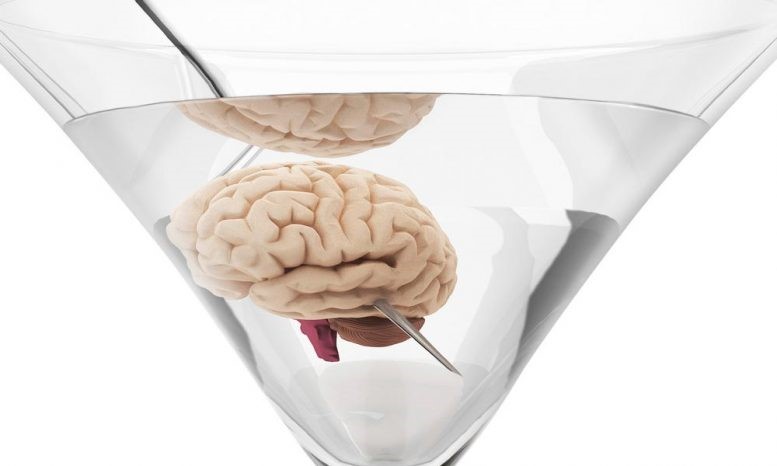
Study finds: More alcohol, less brain
According to a new study, alcohol consumption even at levels most would consider modest—a few beers or glasses of wine a week—may also carry risks to the brain. An analysis of data from more than 36,000 adults, found that light-to-moderate alcohol consumption was associated with reductions in overall brain volume.
The link grew stronger the greater the level of alcohol consumption, the researchers showed. As an example, in 50-year-olds, as average drinking among individuals increases from one alcohol unit (about half a beer) a day to two units (a pint of beer or a glass of wine) there are associated changes in the brain equivalent to aging two years. Going from two to three alcohol units at the same age was like aging three and a half years.
Strong evidence exists that heavy drinking causes changes in brain structure, including strong reductions in grey and white matter across the brain.
To give a sense of the impact, the researchers compared the reductions in brain size linked with drinking to those that occur with aging. Based on their modelling, each additional alcohol unit consumed per day was reflected in a greater aging effect in the brain. While going from zero to a daily average of one alcohol unit was associated with the equivalent of a half a year of aging, the difference between zero and four drinks was more than 10 years of aging.
So, one additional drink in a day could have more of an impact than any of the previous drinks that day. That means that cutting back on that final drink of the night might have a big effect in terms of brain aging.
In other words, "the people who can benefit the most from drinking less are the people who are already drinking the most."
 English
English Arabic
Arabic


